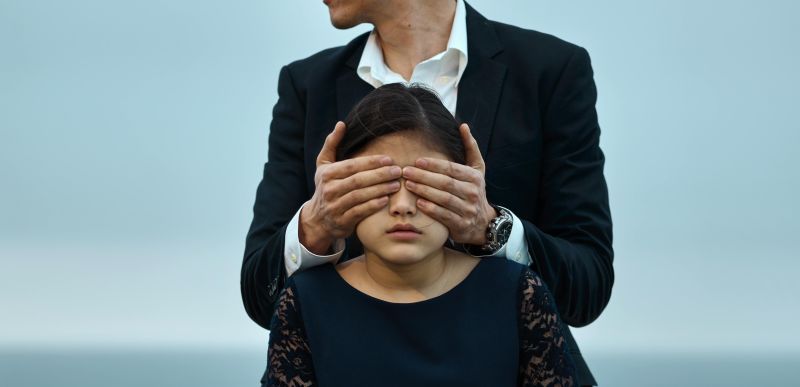
Ali Ibrahim Nassar, a 49-year-old General Security officer, was arrested by his agency on the orders of Mount Lebanon’s public prosecutor, Judge Fadi Malkoun, for harassing a six-year-old Syrian girl in the presence of other children. He remains in custody as the investigation continues. Nassar has been denied communication and the right to confront witnesses and will be referred to the Moral Protection Bureau for further legal proceedings.
Like him, many abuse their influence and authority to manipulate children, crossing moral and ethical boundaries, inflicting deep harm and leaving lasting psychological and physical scars — especially on the most vulnerable.
Roula Lebbos, a social worker, consultant and juvenile protection specialist, explains that “power isn’t limited to those with professional or union ties, such as lawyers, judges and doctors, or to those with political backing, like economists, politicians and public sector officials. It also extends to religious figures.”
She shares with This is Beirut the case of a 12-year-old orphan who lived in a religious boarding facility.
Every weekend, he would visit his aunt, who caught him having sexual acts with his 5-year-old sister. The child explained that it was an act of love, shaped by the behavior of a religious figure toward him and his peers," says the social worker. "Following the complaint and investigation, multiple victims — some now adults — came forward, sharing their experiences with the same perpetrator," she adds.
Such abuse cases often go unnoticed, particularly when individuals in positions of power are involved. Lebbos highlights the pedophilic TikTok influencer scandal that surfaced in late April 2024, in which one of the offenders was a lawyer. "The Bar Association took swift disciplinary action, as any professional body should in such cases," she explains. "However, the problem persists within religious institutions, where penalties remain inadequate."
Randa Barrage, a doctor in psychology and psychopathology and a member of the CPRM clinic, explains that “there is no specific link between individuals in positions of power and the psychological disorders associated with sexual abuse of minors, also known as pedophilia, which is characterized by a sexual attraction to children or minors.” However, she notes that “many of them are narcissistic, psychopathic or exhibit other forms of perversity.”
"Such an individual can be an abuser without experiencing any sense of guilt," the specialist adds, before explaining that "for minors, anyone older is viewed as an authority figure, as they often feel physically powerless in comparison."
The Signs
It is essential for parents to be able to recognize signs that may indicate a child has been a victim of abuse. These symptoms can manifest in various ways. Barrage sheds light on this: "Insomnia, other sleep disturbances and recurring nightmares are often the first signs of anxiety in children." However, this also depends on the child's personality. "Some become hyperactive, while others remain very calm and withdrawn."
"Many children also develop urinary incontinence, as the abuser has awakened sexual desires in them," the specialist continues, noting that "they also tend to use very abstract language when discussing the experience."
"If a child exhibits such signs, it is crucial for parents to handle the situation with sensitivity and ensure a safe, supportive environment that allows the child to express themselves freely," she emphasizes.
Unseen Realities Behind the Statistics
While there are no precise statistics on abuses committed by individuals in positions of control or power, 2,203 cases of abuse were reported to the association Himaya in 2024 alone. These cases are categorized as follows: 13% sexual abuse, 33% physical violence, 15% psychological abuse, 14% exploitation, 23% neglect and 2% psychological distress.
These figures account for just one organization. In reality, many children suffer in silence, with their pain often going unnoticed. Moreover, some parents choose not to report the abuse, making it even more difficult to fully understand the scale of the issue.
The Importance of Reporting
Many victims feel ashamed or fear they won't be able to assert their rights, especially when the perpetrator is in a position of power. Perpetrators often use tactics such as offering financial compensation or other benefits to silence their victims. Despite these pressures, reporting the abuse remains essential.
Roula Lebbos stresses the importance of seeking a forensic examination as soon as any physical signs are noticed on a child.
She also emphasizes the critical importance of reporting the abuse. "Under Law 422, complaints can be filed with the juvenile court judge, the public prosecutor, police stations or even with a trusted individual such as a social worker or an NGO specializing in children's rights," she explains. The process is straightforward, and the current laws are more effective. "Society has evolved, and reporting such abuse is now mandatory," Lebbos notes. Additionally, "reporting has a positive impact on the child's mental health and is often the first step toward their healing," concludes Dr. Barrage.

Comments